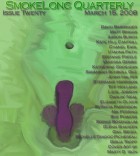“When Arlo’s parents argued, he levitated.” What an opening line! What message is Arlo trying to send?
Our son, who is now a year, is elated by the sight of our dog. He will shriek with glee when our cat jumps on the bed and gaze in wonder at the nuthatches at the birdfeeder. Little children are in a startling state of fascination. At seven months old, Arlo wants to go over to that tremendous and appealing place, the Exersaucer where he can sit in the middle of a ring of mesmerizing gadgets that are colorful, make sounds, and are different textures. He is a clear soul with an intention to escape from the distress of his parents’ argument and instead seek what is beautiful and comfortable. Which, his parents are not doing at all, instead they are grown-up, no longer focused on being enthralled with the astonishing world out there. They are bickering.
What are these parents arguing about? Does it matter?
I’m not sure it matters what they are initially arguing about, but they’re having a sort of quarrel that pilots them toward a metaphysical dialogue, all the while their son is using his mind abstractly to move his body toward an intended goal. Arlo doesn’t know that the laws of physics prevent him from doing such a thing. And, in a way, his parents are at the same time, pondering how the laws of physics affect their disagreement.
You have an incredibly unique perspective and voice, which is what the SmokeLong staff loves about you and your work. How do you generate and develop story ideas?
Thank you!!
Many of my ideas come from unexpected places. For instance, when I was returning from the Juniper Creek Writers Conference in Nevada, I stopped at an organic restaurant in South Lake Tahoe. In their bathroom was a beautiful framed poster of Venus. I thought to myself idly how a man could fall in love with a painting. By the time my salad arrived, I had already sketched out most of the story “Sweet Venus”—published February 2007, Hobart.
Other stories like “Arlo’s Big Head” came partially from overhearing that very phrase in a conversation: “Arlo’s Big Head.” I instantly knew I needed those three words for a title and found a piece of paper to scribble them on.
The novel I finished titled Unloading Norbert, is a puzzle of ideas that came from conversations, past events, daydreams, people that have crossed my path, etc.
I don’t know how many times I have turned the light back on when trying to fall asleep, because I’ve had to write down something tugging at me. I’ve learned the hard way that I won’t necessarily remember in the morning. That period just before falling asleep tends to be a great time for my mind to let go and grab hold of imaginings.
When I was pregnant last year, I found myself several times unexpectedly hot-under-the-collar. Hormones I guess. Rather than hold onto whatever made me so furious, I decided to vent my anger into a story. I’d love to teach a class something like, “Turning Resentments Into Fiction.” Characters can do and say all sorts of things we wish we had in real life. Crappy experiences can be material for future use.
Ideas come easy, it is time that doesn’t. I think what helps me is that I’m not looking for ideas whatsoever; I’m too busy being a new mother. But, daily, I’m inspired to write and jot down snippets here and there. When he naps, I have to write full-steam ahead. I just keep my ears, eyes and memory open for when ideas might present themselves. You just never know when something might strike you to write about—even in a public restroom.
How is the Whidbey Writers Workshop in Washington state? Who teaches there?
The Whidbey Writers Workshop MFA program is one of the best projects I’ve ever taken on. It is a low-residency program. For about 10 days a semester, we meet on fabulous Whidbey Island for a doozy of an intense residency—full of classes, speakers, workshops, and readings. I’ve had the benefit of having four fantastic teachers: Bruce Holland-Rogers—Fiction, Susan Zwinger—Nonfiction, David Wagoner—Poetry, and Wayne Ude—Craft of fiction and the director of the program. They also have stellar speakers: agents, editors, authors. For example: Gary Furguson, Marvin Bell, Elizabeth George, Tess Gallagher.
The rest of the semester is online, but equally powerful. The camaraderie and support of the students and faculty is remarkable.
Congratulations on winning this year’s Kathy Fish Fellowship award! What are your flash fiction goals during your tenure?
The SmokeLong team has already helped me so much with several pieces, including “Arlo’s Big Head”. So, I’m feeling very positive about continuing to workshop pieces for a slipstream collection of flash fiction, on a theme of children, families, relationships. Having a team of people review your work and point out those weak places you either didn’t notice or hoped no one else would notice is a terrific blessing. I’d like to be able to sharpen up as much as possible during this year. At least, as much as we all have the energy for.



 The SmokeLong Grand Micro Contest (The Mikey) is now an annual competition celebrating and compensating the best micro fiction and nonfiction online.
The SmokeLong Grand Micro Contest (The Mikey) is now an annual competition celebrating and compensating the best micro fiction and nonfiction online.